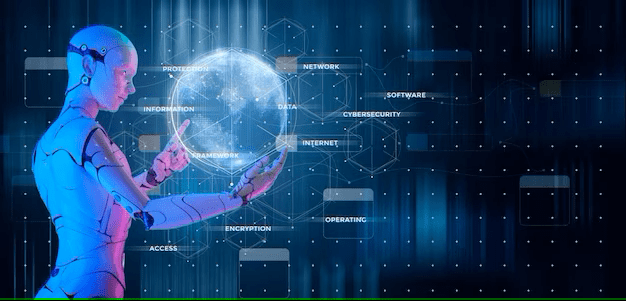
Artificial intelligence (AI) is revolutionizing industries and transforming the way we work. From its potential to enhance scientific research to its impact on foreign policy and consumer experiences, AI is poised to fundamentally reshape our economy and society over the next decade. In this article, I will explore five key predictions about the future of AI and its implications for the future of work.
1. AI and ML: Transforming the Scientific Method
The scientific method has long been the foundation of significant scientific discoveries. However, the process has often been slow and expensive, limiting the pace of scientific progress. With the advent of AI and machine learning (ML), we can expect a dramatic transformation in the scientific method. AI enables the analysis of large data sets and the discovery of complex relationships and patterns that were previously challenging for humans to uncover. By augmenting human intelligence, AI has the potential to unlock new frontiers in scientific research and usher in a new golden age of discovery.
2. AI: A Pillar of Foreign Policy
Governments are recognizing the importance of AI in maintaining global competitiveness. The United States, for example, has embraced the need to partner with AI technology companies to strengthen its position in the global landscape. The National Security Commission on Artificial Intelligence has outlined detailed recommendations for accelerating AI innovation. It is evident that AI will play a crucial role in shaping foreign policy and ensuring economic resilience and geopolitical leadership.
3. Next-Gen Consumer Experiences Enabled by AI
The emergence of next-generation consumer experiences, such as the metaverse and cryptocurrencies, will heavily rely on AI. The metaverse, in particular, presents a unique set of challenges that can be addressed by AI. By analyzing vast amounts of data and learning complex patterns, AI algorithms can enhance perception and enable digital objects to interact seamlessly with physical contexts. The convergence of the digital and physical worlds will redefine consumer experiences, and AI will be at the forefront of this transformation.
4. AI: Enhancing Efficiency and Redefining Industries
AI has the potential to automate, personalize, and fine-tune processes across various industries. Healthcare, education, infrastructure, and professional services are just a few sectors that can benefit from AI-driven automation. The ability to analyze data and make intelligent decisions at scale will revolutionize how businesses and organizations operate. From streamlining administrative tasks to improving customer experiences, AI will reshape industries and create new opportunities for growth.
5. The Evolving Role of Humans in AI
Contrary to common fears, AI is not here to replace humans; instead, it will augment human capabilities and enable individuals to work more effectively. The paradigm is shifting from machines assisting humans to humans assisting machines. As AI becomes more prevalent, individuals will need to develop new skills and adapt to changing work environments. The ability to collaborate with AI systems and leverage their capabilities will be a crucial factor in future job success.
The Future of Work: Embracing the Power of AI
The future of work is intertwined with AI. As AI continues to advance, it is crucial for individuals and organizations to embrace this technology and harness its potential. While some jobs may be automated, AI will create new roles and opportunities that require human skills such as creativity, critical thinking, and emotional intelligence. It is essential to invest in training and education to ensure a smooth transition to the AI-driven future of work.
In conclusion, AI is set to transform various aspects of our lives, including how we work. From revolutionizing scientific discovery to reshaping consumer experiences, AI presents immense opportunities for growth and innovation. By embracing AI and adapting to its advancements, we can navigate the changing landscape of work and thrive in an AI-powered world. The future of work is not about humans versus machines but rather humans working alongside machines to create a more efficient and productive environment.